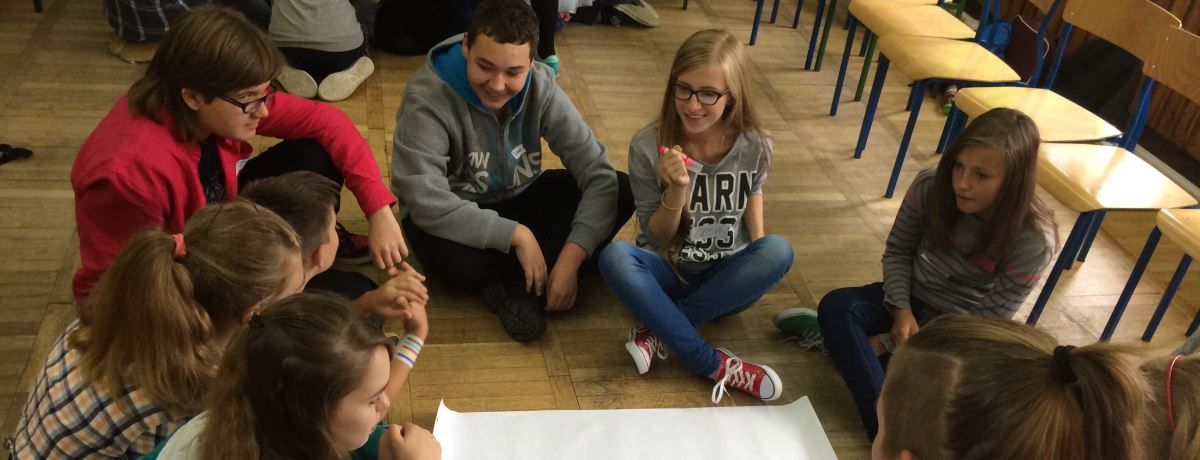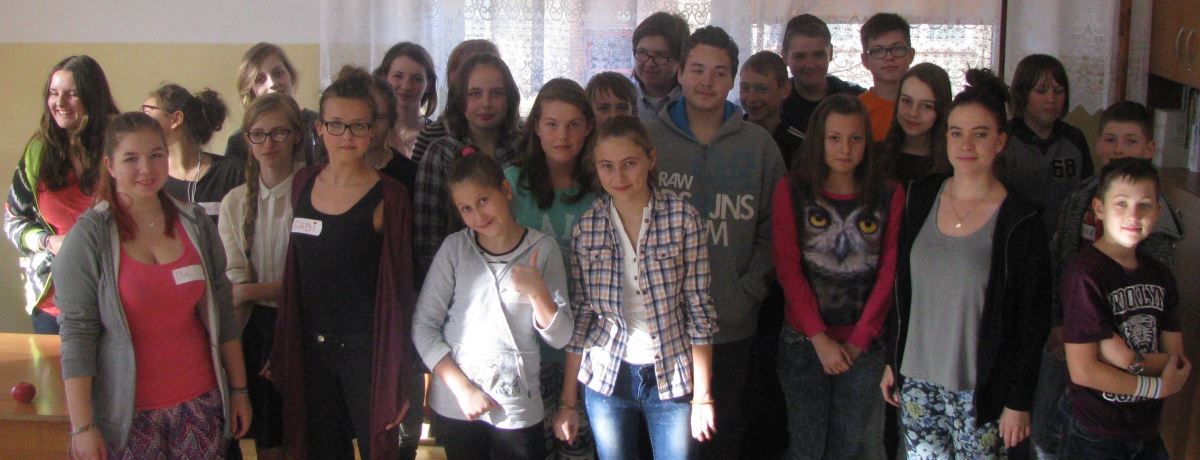Zabłudów
Karol Chodkiewicz Junior High School


Only an ohel and a few tombstones remain from the centuries-long Jewish presence in Zabłudów. However, after the School of Dialogue workshops, Zabłudów junior high school students say: “Although there are almost no traces of Jewish residents in our town, I would like people to remember how it used to be here.” And it used to be that Jews were the majority group in Zabłudów…
First Jewish settlers arrived in the town in the 16th century – in 1566 a Kehila was established, in 1635 the area for a cemetery was delineated and a few years later a beautiful larch-wood synagogue was erected.
At the end of the 19th century, 60% of the local population was Jewish, with the percentage rising to 70% right before World War II. In Zabłudów’s heyday, the town boasted Nusbaun Sapiro’s textile manufacturing plant, Mr. Asz’s corduroy and cloth factory, steam mills, tanneries and weaving shops. A Jewish theater operated in the town, its income going to the local Jewish library. In June 1941, German soldiers entered Zabłudów, burnt down the synagogue and forced the local Jews to work paving roads and in tanneries. In 1942, around 1,400 Zabłudów Jews were deported to Treblinka.

In the course of the workshops students learned about Jewish history and culture, imagined the life of their Jewish neighbors before the war and independently developed a plan for a location-based game of Jewish Zabłudów. Before the final event, students divided the tasks among themselves (some became tour guides, others would impersonate characters from different stops), created a presentation about the history of Zabłudów’s Jews and finally they prepared snacks and refreshments for players.
Students from elementary school in Białystoczek were invited to participate in the game, which was held in various locations all over the town. The players had shifted in time to prewar Zabłudów, receiving maps with stops on the route they should complete marked out for them.
Four groups subsequently headed out from the tour’s starting point – a park in the heart of Zabłudów. En route, players would visit, among others, the tenement house which used to house a Jewish restaurant; the site of the synagogue; the voluntary Fire Department, whose members were predominantly Jewish (almost 80%) and the Jewish cemetery. At the end of the day, junior high school students showed their presentation about Jews of Zabłudów and prepared a meal, including challah bread, fish rolls and liver cookies. Afterwards, one of the game participants said: “I could imagine how all this used to be. [The tour] showed me the image of prewar Zabłudów. Too bad that Jews are no longer here… I would very much like to live among them.”

School:
Karol Chodkiewicz Junior High School
Students:
1st and 3rd year students
Teacher:
Artur Trojan
Educators:
Stanisław Niemojewski, Maria Pawlak
In appreciation to the Conference on Jewish Material Claims Against Germany (Claims Conference) for supporting this educational program. Through recovering the assets of the victims of the Holocaust, the Claims Conference enables organizations around the world to provide education about the Shoah and to preserve the memory of those who perished.

In appreciation to Friends of the Forum for supporting the School of Dialogue educational program.
